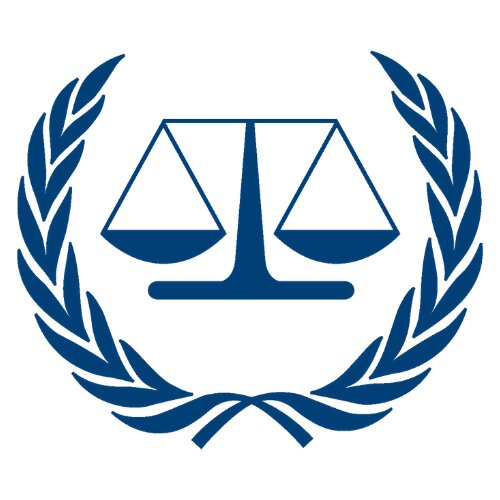Best Family Lawyers in Indonesia
Share your needs with us, get contacted by law firms.
Free. Takes 2 min.
Free Guide to Hiring a Family Lawyer
Or refine your search by selecting a city:
List of the best lawyers in Indonesia
Indonesia Family Legal Questions answered by Lawyers
Browse our 1 legal question about Family in Indonesia and read the lawyer answers, or ask your own questions for free.
- Include Biological Father's name in Child's Birth Certificate and Family Card
- Is it possible to include the biological father's name on the child's birth certificate and family card in Indonesia if parents are married only Nikah Siri and the marriage is not registered in government records
-
Lawyer answer by TNC & FRIENDS LAW FIRM
You must first apply for the legalization of a siri marriage and then register a legal child registry. Thank you.
Read full answer
About Family Law in Indonesia
Family law in Indonesia is a pivotal aspect of the country's legal system and is primarily governed by a combination of civil law and Islamic law. It encompasses a range of issues, including marriage, divorce, child custody, and inheritance. Indonesia's diverse cultural and religious landscape contributes to a unique family law structure that is influenced by both traditional practices and modern legal principles. The laws are designed to support and protect family integrity, children's welfare, and spouses’ rights within the family unit.
Why You May Need a Lawyer
Legal representation in family matters can significantly influence the outcomes of disputes and provide clarity in complex situations. Common scenarios where legal assistance may be needed include:
- Filing for divorce and negotiating terms such as asset division and spousal support.
- Resolving child custody disputes and establishing visitation rights.
- Drafting and enforcing prenuptial and postnuptial agreements.
- Handling matters related to adoption or guardianship.
- Ensuring proper execution of inheritance and succession planning.
Local Laws Overview
Family law in Indonesia operates under several key statutes and customary laws tailored to the country’s demographic diversity. Key legal frameworks include:
- Marriage Law: Regulated by Law No. 1 of 1974, which requires parties to register their marriage with civil authorities for it to be legally recognized.
- Divorce Process: Couples must go through specific courts depending on their religion, such as religious courts for Muslims and district courts for others.
- Child Custody: Law prioritizes the best interests of the child; generally, the mother is awarded custody for young children after divorce.
- Inheritance Law: Generally follows Islam’s inheritance structure for Muslims, while other religions or beliefs can influence inheritance via civil laws.
Frequently Asked Questions
What legal age do people need to be to marry in Indonesia?
The legal marrying age in Indonesia is 19 for both men and women as per the amendments made to the Marriage Law in 2019.
Is polygamy legally recognized in Indonesia?
Yes, polygamy is recognized in Indonesia but under strict conditions, primarily within Muslim marriages, and requires court approval and the consent of the existing wife or wives.
What grounds for divorce are acceptable by Indonesian law?
Acceptable grounds for divorce include ongoing disputes, one party engaging in criminal activities, abandonment for two consecutive years, receiving a long prison sentence, and more.
Do prenups stand up in Indonesian courts?
Yes, prenuptial agreements are legally recognized if registered and properly executed before marriage, though specifics may be subject to judicial interpretation.
How is property divided in a divorce?
Indonesian law generally considers property acquired during marriage as marital property to be equally divided unless another arrangement was agreed upon.
Can foreign citizens marry Indonesians legally in Indonesia?
Yes, foreign citizens can marry Indonesians, but they must provide specific documents, including a Certificate of No Impediment (CNI) from their respective embassy.
How does one adopt a child in Indonesia?
Adoption is legally permissible; it involves a thorough legal procedure and typically requires potential parents to reside in Indonesia and gain court approval.
What is the legal stance on domestic violence in Indonesian family law?
Domestic violence is criminalized under Indonesia's Domestic Violence Act, and victims can seek protection orders and other legal remedies.
Are there special courts for family matters?
Yes, there are special religious courts for Muslims and district courts for non-Muslims that handle family-related cases like divorce and inheritance.
What rights do children have under Indonesian family law?
Children have various rights aimed at their welfare, including the right to education, healthcare, and protection from abuse, as stipulated by national laws and international conventions Indonesia is party to.
Additional Resources
For further assistance or guidance, consider reaching out to the following resources:
- Indonesian Ministry of Law and Human Rights for legal information and services.
- Local religious and district courts, which handle family law matters.
- Indonesian Legal Aid Foundation for possible legal assistance and advice.
Next Steps
If you need legal assistance in family matters, consider the following steps:
- Consult with a qualified family law attorney to discuss your case specifics and options.
- Gather relevant documents such as marriage certificates, birth certificates, and financial records.
- Understand your rights and obligations under Indonesian family law.
- Consider mediation or arbitration as an alternative to court proceedings for resolving family disputes.
- Maintain communication with all parties involved and facilitate a transparent process.
Lawzana helps you find the best lawyers and law firms in Indonesia through a curated and pre-screened list of qualified legal professionals. Our platform offers rankings and detailed profiles of attorneys and law firms, allowing you to compare based on practice areas, including Family, experience, and client feedback.
Each profile includes a description of the firm's areas of practice, client reviews, team members and partners, year of establishment, spoken languages, office locations, contact information, social media presence, and any published articles or resources. Most firms on our platform speak English and are experienced in both local and international legal matters.
Get a quote from top-rated law firms in Indonesia — quickly, securely, and without unnecessary hassle.
Disclaimer:
The information provided on this page is for general informational purposes only and does not constitute legal advice. While we strive to ensure the accuracy and relevance of the content, legal information may change over time, and interpretations of the law can vary. You should always consult with a qualified legal professional for advice specific to your situation.
We disclaim all liability for actions taken or not taken based on the content of this page. If you believe any information is incorrect or outdated, please contact us, and we will review and update it where appropriate.
Browse family law firms by service in Indonesia
Indonesia Attorneys in related practice areas.
Browse family law firms by city in Indonesia
Refine your search by selecting a city.















